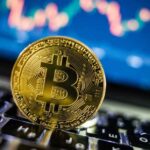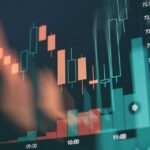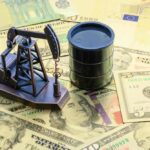The Federal Reserve Chair Jerome Powell has been having a hard time catching a break in recent years as it would appear hardly anyone is content with his institution’s actions – though for wildly different reasons.
At a second glance – though not necessarily the third – this isn’t particularly surprising. On the one hand, high interest rates have helped the collapse of many startups and have, apparently, failed at truly tackling inflation as figures have been heating up in recent months.
On the other hand, the rates have also helped depress the stock market’s ability to grow but, apparently, not to the expected extent as the S&P 500 and the Dow Jones Industrial Average (DJIA) have been, despite the restrictive conditions, running high and, for the most part, at their records.
A continuous topic of discussion has been whether the FED should cut rates, and when and by how much it ought to do so.
On April 2, Steve Eisman – an investor who came to fame by shorting the housing bubble during the 2008 crisis – finally weighed in on whether interest rates should remain high.
Eisman opposes rate cuts
According to Eisman, the economy is doing fine with no need for the Federal Reserve to start cutting rates – as many have started speculating due to Powell’s more recent dovish comments.
Instead, Eisman believes that the real danger is that any possible rate cuts would lead to a full-blown stock market bubble. In the ‘Big Short’ investor’s opinion, the central bank would be much wiser if it allowed for the economy to slow down on its own before changing course.
Eisman also added that rate cuts could also create a situation in which they would have to be raised again in the near future – possibly even more than the current 5-5.25% – stating that “that would be the worst possible thing that could possibly happen.”
Finally, he reinforced his point by opining that, while the 1999 market was indeed a bubble, the collapse did not occur due to the state of the market itself, but because the FED raised rates and forced a recession.
Is a crisis inevitable?
While Steve Eisman proved bullish on the economy and opined that the market is currently strong thanks to solid fundamentals, many analysts, experts, and other prominent investors vehemently disagree.
For example, Robert Kiyosaki, the author of the best-selling personal finance book ‘Rich Dad Poor Dad,’ has been warning for a long time both that there exists a massive bubble, and that it will burst causing immense damage akin to the crisis of 1929.
Gordon Johnson, the founder and CEO of GLJ Research, has been more focused on the inflation fight repeatedly estimating that the FED is, in fact, losing the battle, criticizing the central bank’s metrics, and laying the blame directly at the feet of Jerome Powell and Janet Yellen stating they will be directly responsible ‘most predictable forthcoming inflation crisis ever.’
Buy stocks now with eToro – trusted and advanced investment platform
Disclaimer: The content on this site should not be considered investment advice. Investing is speculative. When investing, your capital is at risk.








